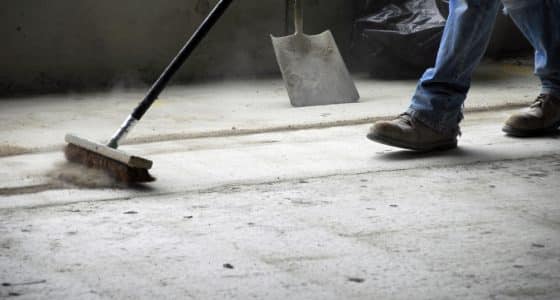People who’ve been exposed to asbestos are at risk for malignant mesothelioma, asbestosis, and other serious medical conditions: many of them die. Most blame their illnesses on manufacturers, employers, and others who should have protected them, and many pursue lawsuits seeking compensation for the damages they’ve suffered. The family of one such victim recently filed suit against the general contractor who controlled his work sites. Though the company attempted to dismiss his claims, a New York Court agreed that a jury should decide the case.

Workman’s Mesothelioma Blamed on Asbestos at Job Sites
The asbestos lawsuit filed for the estate of Mario Ferrari seeks compensation from several defendants, including general contractor Structure Tone, of common-law negligence as well as violation of New York’s Labor Law 200. Mr. Ferrari had recalled the company’s employees sweeping up asbestos dust without any precautions. Common-law negligence claims are based on a landowner or general contractor’s duty to provide workers with a reasonably safe place to work. It implicitly relies upon that party having the authority to control the activity that brought about the injury. Labor Law 200 follows those same expectations.
The courts have established that a general contractor accused of negligence in mesothelioma claims and similar claims can have the case dismissed if they can “unequivocally” prove that it could not have contributed to the victim’s injury. Structure Tone filed a motion to dismiss the claim based on this. The company argued that Mr. Ferrari’s testimony showed he had not been exposed to asbestos at the two specific locations where he could recall having worked. They also offered testimony from their own executive vice president asserting that the company and its subcontractors had not used any asbestos-containing materials.
Court Notes Issues of Fact to be Determined in Mesothelioma Claim
In its review of the general contractor’s argument, the court noted that the company had mischaracterized the mesothelioma victim’s testimony: while they asserted that the two locations cited were the only job sites where he’d encountered their company, he’d actually testified that he’d worked alongside the company’s employees and subcontractors at 20 to 30 locations, but that he could only specifically recall those two addresses.
The court also noted that despite the executive vice president’s testimony that neither the company nor its subcontractors had used any asbestos-containing materials, the man’s deposition showed that the company had never actually asked its subcontractors about the issue, and that the witness had no personal knowledge about what he had testified to. This failure to unequivocally establish that it could not have contributed to causing Mr. Ferrari’s mesothelioma was enough for the court to deny the company’s motion to dismiss. The case will proceed to a jury trial.
If you or someone you love has been diagnosed with an asbestos-related disease, you may have the right to pursue justice from those responsible. For more information, contact the Patient Advocates at Mesothelioma.net today at 1-800-692-8608.
